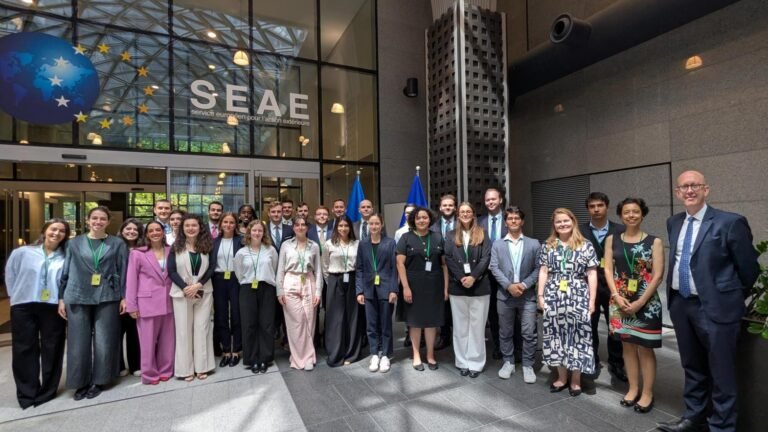
Poland’s political focus on immigration is drawing sharp criticism for sidelining the country’s urgent economic and technological priorities. Despite bold promises of modernization, recent data shows Poland lags far behind its EU peers in artificial intelligence and education, raising concerns over its ability to compete in future innovation.
According to a study by Notes from Poland, only 5.9% of Polish companies used AI tools in 2024, the second-lowest rate in the European Union. While adoption grew by 30% year-on-year, experts say this remains “too little, too late” to close the gap with Western Europe. Industry reports also point to a shortage of digital skills, with universities underfunded and ill-equipped to support an AI-driven economy (AI Watch EU).
At the same time, President Karol Nawrocki’s government has intensified debates over immigration, including reinstating border controls with Germany and Lithuania (Reuters). Critics argue this rhetoric is being used as a political distraction while job creation stagnates and foreign investors grow increasingly cautious.
Although major projects such as Intel’s €1.9 billion chip plant and Google’s AI collaboration show promise (Reuters), analysts warn these isolated initiatives cannot offset the wider gaps in research funding, venture capital, and workforce readiness.
Economic observers caution that without a shift toward technology-driven policy and education reform, Poland risks falling further behind in Europe’s innovation race. As political energy continues to be spent on immigration disputes, the country’s future competitiveness remains in question.






